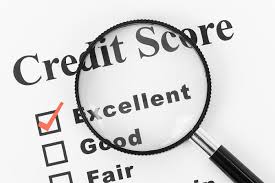- Home
- Free Credit Score
Free Credit Score
Do You Know What Your Credit Score Is?
Get your FREE Credit Score from all 3 Bureaus delivered in seconds!
TransUnion, Equifax, Experian Scores
Daily Credit Monitoring & Alerts
Your Scores Delivered in Seconds


Understanding Your Credit Score
To have the best chance of improving your credit score you will need to have a good understanding of how it is calculated as that will help you to decide on the actions you need to take. Credit score is a numerical calculation based on a number of factors that helps lenders decide whether you are a risk to lend money to.
The numbers generally range from 300 to 850 and allow lenders to see how well you are at paying off your debts.
 The higher this number is the more likely you are to get credit and you will also usually get it at lower interest rates because of the fact that you will be regarded as a lower risk for repayment. If your score falls below 600 you will probably have trouble getting credit and if you do you will be expected to pay higher rates due to the risk involved. Scores over 720 are regarded as excellent and you can expect to get good rates.
The higher this number is the more likely you are to get credit and you will also usually get it at lower interest rates because of the fact that you will be regarded as a lower risk for repayment. If your score falls below 600 you will probably have trouble getting credit and if you do you will be expected to pay higher rates due to the risk involved. Scores over 720 are regarded as excellent and you can expect to get good rates.
This is just a guideline as some lenders place more importance on credit scores than others and while you might have difficulty getting credit with one lending institution that is not to say you will have difficulty with all of them.
Often you can discuss your situation with the lender even when you have a low score and still get them to finance you at reasonable rates.
Sometimes they will look at your whole credit history and take that into account rather than just the current poor score.
Your credit score comes from the calculations that are determined by the credit bureaus and are based on mathematical data that is arrived at from your credit report information that is supplied to the bureaus from people who have lent you money and from people you owe payment of bills to.
The Main Credit Bureaus
One of the first things that you will need to do when you decide to start improving your credit score is to get copies of your credit report to see where you need to start taking action to boost your rating. There are three major credit bureaus that you will need to contact. They will send you copies of your reports and once you receive them you should carefully go through all the documents to see whether there have been any mistakes that might affect your rating.
It is not uncommon to find some errors and if that is the situation you will need to contact the necessary agencies to get these corrected. This can be done via the Internet, phone, mail or fax.
 Whenever you are dealing with anyone at these organizations make sure that you get the details of the person who is handling your request as this will allow you to go back to them if the error isn't resolved and it will also help to make them take action and do as you request. Keep copies of all the correspondence you have in case you need to produce it if there are problems again in the future. If they make changes check that they are as you expected and if not query them until you are happy with the solution.
Whenever you are dealing with anyone at these organizations make sure that you get the details of the person who is handling your request as this will allow you to go back to them if the error isn't resolved and it will also help to make them take action and do as you request. Keep copies of all the correspondence you have in case you need to produce it if there are problems again in the future. If they make changes check that they are as you expected and if not query them until you are happy with the solution.
Sometimes just clearing up some of these errors and issues might be enough to allow you to boost your credit score and have access to more opportunities to borrow money or save money with lower interest rate loans.
Never assume that people have done their job correctly especially when it comes to something as important as you financial position. Many people have been paying higher interest rates for years simply because they were unaware that there were errors on their credit reports giving them a lower rating.
Planning for Credit Repair
To successfully make changes to your credit score in a timely manner you need to create a plan of action that will see you taking the necessary steps to boost your rating. The plan starts with obtaining a copy of your credit report and then you can determine where the main cause of your low score lies. There can be many factors that will lower your score and these should be relatively easy to see when you have your report. Maybe you have got too much debt and the credit bureaus think you might have difficulty making repayments.
You might be certain that you can make these repayments but their ratings are based on research and mathematical calculations based on the population as a whole and while they understand that some people are better at handling their finances than others this is the only way they can consistently offer suitable information to the lending companies.
If you have unpaid bills then getting these in order will certainly help and that will be one of the first things that you will need to focus on if that is the situation.
If you have had major problems such as bankruptcy then it is going to be a bit more difficult to help your credit score but not impossible as many people have periods of financial struggle and this is understandable to most people. Even the fact that you haven't had enough credit or time to establish a good credit score will affect your rating. Defaulting on loans, taxes or anything else that resulted in a collection will reduce your rating and will need to be addressed.
Take your information and start to devise a plan where you can reverse the situation and let potential lenders see that you have sorted out your finances and are now a safe bet to make your repayments on time all the time.
Deciding on the Action to Take
By focusing on the specific areas that are causing the most problems and therefore having the biggest effect on the downgrading of your rating you will be able to boost your score a lot faster. Even if you have decided to get professional help to increase your rating you should have a good understanding of the factors that resulted in your poor score and give your professional advisor information, along with what they will already have, to help them devise the best plan of attack.
 If you have collected all the information and you make an honest attempt to see where you have gone wrong there is no reason why you cannot do this for yourself and in doing so it will give you the confidence to handle your finances better in the future.
If you have collected all the information and you make an honest attempt to see where you have gone wrong there is no reason why you cannot do this for yourself and in doing so it will give you the confidence to handle your finances better in the future.
You will also save on the cost of professional fees if you do this for yourself and that money can be used to help clear some of your outstanding debts.
Make a checklist of where you believe you have gone wrong and along with that create a list of the things that you will need to do to achieve your goals. This will give you a guideline that you can follow and increase your chances of success.
By writing down all this information it will also help you to focus better and think more about the direction that you will now be leading in your life.
Don't underestimate the power that writing down a plan can have on actually achieving it. You will also need to create a budget that will allow you to quickly see at any time, how many funds you have available for your debts and when those debts are due for payment. Without a good budget it is very difficult to easily handle your finances and improve your score at the same time.
Your Credit History
While there is nothing you can do about your past history you need to understand that this is one of the most important factors that the credit bureaus will use to determine your credit score and whether you are a risk or not. This is the best indicator that they can get on how you will be expected to perform in the future and even if you have changed your ways and are now more financially competent you will still have to deal with this on your records.
Approximately 30 percent weighting is placed on credit history when determining credit score so you will understand that apart from the fact that you can't change what has passed you can start showing to the credit agencies that you are less risk now by paying all your current debts on time and in full.
This will give them some sign of what they might be able to expect in the future.
The bigger the problems you have had in the past the more work you will have to do to convince all involved that you deserve a second chance.
Bankruptcies and unpaid taxes are the ones that will count against your score the most along with loan defaults and late payments. If you can clear any of these debts that will have a substantial affect on your rating but often this is not possible with bankruptcies so you will be better off focusing on showing the credit bureaus that all of your current debts are getting paid as they should.
This will begin to establish a new pattern and a new credit score will be the result of this action. Even though this can take a while to reverse if your prior history has been relatively poor there is no time like the present to get started because that will allow you to start getting smaller amounts of credit which will in turn speed up the process of credit score recovery if you make the repayments on time.
Boosting Your Credit Score
Because there are many different factors that are used to determine the way your credit score is calculated, the way that you approach the situation will determine how fast you can boost your rating. As it is possible to have some idea of the areas that are affecting your credit score and also the impact that these areas have on the overall rating you can create a plan that gives you the best results in the least time.
 By approaching your credit repair in such a manner this will make each step of your plan easier to accomplish as improving your ability to get smaller value loans will allow you to build upon the 'new' history you are creating and give lenders the confidence to trust you as a safe client.
By approaching your credit repair in such a manner this will make each step of your plan easier to accomplish as improving your ability to get smaller value loans will allow you to build upon the 'new' history you are creating and give lenders the confidence to trust you as a safe client.
This will allow you to get better interest rates and the lower repayments due to this will ensure that you can manage them and not miss any payments, thereby improving your credit score even more.
While you should start your plan with this approach to get the momentum going to improve your score you will also need to remember that there are several areas that will affect your score and they all need to be addressed at some stage if you are to get the highest score possible.
You will need to adjust your plan and budget as you progress and more often than not most people who follow a specific plan find that they start to achieve their goals sooner than initially expected.
Repairing your credit score isn't quite as hard as most people assume provided you make the right moves and ensure than you don't have any hiccups along the way where you miss payments or make your payments late. If you are serious about repairing your credit rating then you need to understand that there shouldn't be any room for error, as it won't look good in the eyes of the lenders if you are still unable to meet your commitments.
Check Your Score Regularly
The only way that you are going to make sure that there aren't any irregularities with your credit score is by checking it on a regular basis.
This is a good practice to adopt because you can deal with any problems in a timely manner and not let them come to the surface when you are in need of urgent credit.
At a minimum you should check annually and unfortunately most people don't do this.
You should always check your credit score at all the main credit bureaus as some will have different information than others.
If there is anything that shouldn't be on your report then let them know immediately and find out where the source of the problem is before it becomes a bigger concern.
Usually it will only be a mistake that the credit bureau has made and that is why it is essential that you check with all the major credit bureaus and not just one. It could be the one that you didn't check that had the error that will stop you from getting the credit you need when required. If the 'error' turns out to be a problem with identity theft then you will need to contact all the credit bureaus and get help from their fraud department.
They will place an alert on your file that will let anyone who is seeking information of your credit score know that you have been a victim of fraud. The alert will also tell you when a lender is looking at your file and if this is happening when you aren't requiring it for any financial transactions then it might be because the identity thief is trying to get money in your name.
Alerts usually last for between 90 and 180 days but this period can be extended if you ask for an extension of the time.
When a lender sees that the person trying to get the credit isn't you they will deny the application and often alert the authorities to the person trying to get the money.
Maintaining Your Credit Score
Maintaining a watch on your credit score is something you should do on a regular basis and not something that you only look at when your rating falls below a certain point. As part of your overall financial management and budgeting you should check your credit score and see if there are any areas that can be improved upon to help boost it. Most of these changes take very little effort and usually it is more the time factor that affects your score so checking it and taking action as soon as required will help you to maintain it at a higher level for longer.
 Your credit history will therefore look more favorable and that will make any future financial transactions easier and more beneficial for you.
Your credit history will therefore look more favorable and that will make any future financial transactions easier and more beneficial for you.
You can get a free credit report from each of the major credit bureaus and you should take advantage of that opportunity to check your rating on a regular basis as even someone who maintains good monetary policy can be affected by outside factors such as identity theft and errors made by the credit bureaus.
Errors or other credit problems need to be addressed immediately as they become bigger problems the longer they are left.
It is easier to maintain your credit score than to repair it.
If you have different forms of credit you will find that your credit score can be constantly changing and you need to make the changes necessary to keep that score as high as possible.
Any work you put into maintaining a higher credit score will be paid back to you many times over with reduced interest rates and lower payments on loans.
Keeping your score high is relatively simple and the more you work at it the easier it becomes.
Anything can happen in life and even the best of financial planners can be faced with monetary problems throughout their life - Good credit scores make these times a lot easier to manage.
Know Your Score in Advance
Before you enter into any financial arrangement you should know what your credit score is because some lenders will use the fact that most people don't know their score as a means of bargaining. They might tell you your score is lower than it is to help squeeze a higher interest rate out of you when signing up for finance or they might even start their negotiations with comments that you won't get credit anywhere else due to your credit score. This gives them the opportunity to charge you more if you believe them and think they are your only option.
Any way that a lender can get a few extra points of interest out of their customers can add up to a good increase in their profits at the end of the year so they will be using all the tricks they know to get higher rates where possible.
THIS IS AN ADVERTISEMENT AND NOT AN ACTUAL NEWS ARTICLE, BLOG, OR CONSUMER PROTECTION UPDATE.
Privacy Policy|Terms Of Service|Contact Us|Earnings Disclaimer
